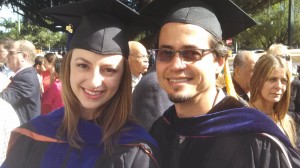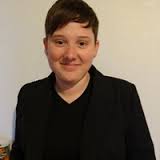Writing for publication: Lessons from the trenches
Not too long ago I had a conversation with a recent PhD. graduate about career issues and the struggles we go through to get established in the competitive environment that is academic psychology. Having climbed a steep learning curve myself as a junior faculty, I’ve always enjoyed passing on the lessons I’ve acquired along the way. As is the case with many young PhDs and junior faculty in general, this young colleague described extremely common struggles with writing for publication and the accompanying pressures that we feel to produce when it seems that everyone around us is lapping us with their published work. After talking with this young colleague, I thought it would be useful to share some of the lessons I have learned about professional academic writing. My hope is that it will help other colleagues who, like me, have encountered many writing frustrations and have begun to feel as if they have lost their way.
I think the key issues plaguing writing productivity among junior faculty and new professionals fall in six areas.
They are:
(1) lack of confidence about writing
(2) lack of knowledge of one’s personal rhythm/preferences with respect to writing
(3) lack of skill in writing for publication in scientific journals
(4) lack of familiarity and experience with the peer review process
(5) time management struggles and….
(6) lack of an extensive professional network.
I’ll address writing confidence and writing knowledge/skills in depth. I will also provide the names of resources I have found helpful along the way.
Becoming a Professional Writer
Lack of knowledge about how to write for publication in academic journals and other outlets is a common barrier to publishing for junior faculty. In my journey and those of my young colleagues, I learned that several issues with respect to the young scholar’s identity as a writer must be addressed. This will lay the foundation for the novice writer to develop the thick skin needed to endure the peer review process and to make it work for her. Learning about the peer review process can be mastered, but only after the writer has resolved some of the other issues first involving confidence and knowledge of personal rhythm and preferences as they relate to the writing process. Until these underlying issues are identified and addressed, academic publishing will always be a frightening, demoralizing process that derails many an academic career. I think that many young scholars struggle with publishing because of fear of rejection, not due to lack of capacity to learn the skills needed to publish successfully.
Young academics must first recognize that being an academic means being a professional writer. This idea was first presented to me in a book called, The Craft of Research by Wayne Booth, Gregory Columb, and Joseph Williams. It seems like an obvious point to me in retrospect, but hindsight is always 20-20. I don’t think everyone views it that way at the time they decide to pursue a doctoral degree. I certainly did not. If you fundamentally do not enjoy writing, academia may not be for you. This may seem like a harsh statement, but in my opinion you must derive some intrinsic joy from the challenges of writing or it is not worth some of the sacrifices. There are many wonderful ways to be happy in your career. Why spend your days doing something you hate?
If you know that academia is indeed for you and you simply need some help figuring out how to be a productive writer, spend some time identifying your attitudes about writing. Write them down. Are they generally positive or negative? Also spend some time thinking about the experiences that have shaped your attitudes about writing. Do you dread the writing process? Or do you dread the critical feedback on your writing from colleagues, mentors, and the peer-review process? Or is it both?
As cognitive-behavioral theory tells us, attitudes about writing can be changed once they are made explicit. If you are struggling with your writing productivity, it can be helpful to sit down and disentangle any negative beliefs that may impede your writing efforts as manifested through procrastination, writer’s block, and other common writing challenges. There are many myths that surround successful writing that may infect your writing experiences and productivity. Robert Boice addresses many of these issues and provides exercises for young academics to address them in his book, Advice for New Faculty Members.
One critical habit to successful writing is finding and sticking to a regular time to write in your schedule. Make it a regular, preferably daily, appointment in your date book. Do not give that time away to other demands on your time. In his book, The Art of Writing for Publication, Dr. Kenneth T. Henson advises writers to keep the tools of a serious writer nearby in all of the places where you write regularly. The obvious tools are a dictionary, thesaurus, any reference material, and your trusty APA manual.
- Have a good writing handbook available that addresses each stage of the writing process, including outlining, paragraphing, revising, and proper usage of grammar and punctuation. Such a handbook will help you break down writing projects into manageable pieces and also help you respond to feedback you receive from your mentors and colleagues about ways to improve your writing and to edit your own work. Having these tools on hand will also reduce loss of precious time actually writing by eliminating the need to hunt them down during every writing session.
Revising Prose by Richard A. Lanham helps writers deal with the structure of the writing on the page so that it is clear and pleasing to the reader. It helps writers evaluate whether the sentences and paragraphs in the work address a single idea clearly and successfully. Why is this an important resource? Have you ever been asked to review a manuscript or grade a paper littered with 2-sentence or page-long paragraphs? These types of writing problems are always a signal to reviewers that the authors are inexperienced. Professional scientific writing must be technically accurate and meet the standards of polished professional writing of any published work. The more polished your initial manuscripts are when you submit them, the more likely reviewers are to take seriously the scientific findings you wish to convey in your document. Poor writing mechanics irritate reviewers almost immediately and undermine the persuasiveness of your work, no matter how exciting your research findings may be. It requires more work for the reviewer to wade through a poorly constructed document to figure out what you did and what you want to say about it. Given the time pressures reviewers are under, poor writing can aggravate reviewers and, in some cases, lead them to critique your work more harshly. Revising Prose will help you to evaluate your writing systematically in prior to submission and in response to critical feedback.
The Guide to Publishing in Psychology Journals by Robert J. Sternberg is an excellent volume on professional writing for psychologists. Sternberg invited several prolific academic psychologists to write a chapter addressing each type of product an author might produce (e.g., empirical journal articles, book chapters, review papers) along with strategies for documenting your research, writing for your audience (e.g., reviewers), and handling the revise-resubmit process. I found the chapters on writing introductions to journal articles and on writing compelling results sections extremely useful as I made my way up the publication learning curve. I refer to the Guide regularly and assign chapters to students working on various writing projects.
Developing Writer’s Confidence
Many students and young PhDs find writing aversive because of negative and/or erroneous beliefs about writing and a tendency to engage in negative self-talk during the writing process. In talking to others and reflecting on my own experiences, writing confidence is the biggest hurdle to clear for young PhDs (or students) who are serious about publishing their research. As one of my major professors said to me during my earlier struggles, writing confidence comes in part from believing that you have “something to say to the field.” You have interesting, innovative ideas and findings that you want to contribute to the field and have them shape the way the field evolves.
Writing confidence can also come from gauging the support and interest you receive about your work when you present it at various conferences. Think about it for a moment. You know when you’ve generated meaningful findings. The audience is excited about your work. You receive great feedback and interesting questions about your presentation. Members of your audience encourage you to publish your findings. You feel energized by the presentation and know you’ve connected with your audience. This feedback is authentic—it is a preliminary peer review process that helps you gauge the relevance of your work. Trust that feedback, sit down at your computer, and write. Turn that conference paper or poster into a manuscript. Try not to focus on issues related to publication at this stage. Just write. And keep writing until the paper is done. (Now there are issues related to selection of journal outlets that have to be considered, but the unsure writer needs to simply gain confidence that he can express his research findings clearly and persuasively first.)
As you deepen your knowledge about the mechanics of writing and revising your work, you will become more confident about your writing. This will help you figure out how to revise the early drafts of your paper and respond to critical feedback about your written work. With experience, you will be able to tell if: (a) your ideas or findings are compelling but need clearer, compelling writing to communicate them, (b) your research ideas need more work or development, or (c) whether someone is simply hostile to your work no matter how strong the findings are or how well you explain them in your writing. In any of these cases, the feedback will probably sting, but hopefully not for long. And hopefully, it won’t keep you from moving forward with the necessary revisions in the appropriate areas when you have a chance to process the feedback with a clear head.
Life as tenure-track faculty member can be a significant challenge because of the pressures to produce a fairly large amount of published work in a short period of time. In order to develop as a professional writer, you have to be regularly engaged in the writing process. Write regularly and submit your work for review. Over time, you will figure out your strengths and weaknesses as a writer and improve on these using tools such as the ones I am outlining here. Rejection can be scary, but take a deep breath and submit your work anyway. You will learn more quickly and meet success earlier if you fully engage the process. As any published author will tell you, there are fewer sweeter professional rewards than seeing your name and scholarly work in print.
There is so much I could say about the writing process, but I hope there is something useful here that will help you move forward.
Happy writing!
[Editor’s note: This post was written Mia Smith Bynum, PhD; Associate Professor of Family Science; School of Public Health; University of Maryland. It originally appeared on the Multicultural Mentoring blog by the Society of Clinical Psychology’s Section on the Clinical Psychology of Ethnic Minorities. (APA Division 12, Section 6). It is reposted here with generous permission. Over time, you will see all eight original posts on gradPSYCH Blog.]

Here’s one thing you can do #BringBackOurGirls
Editor’s note: A full version of this post with more questions and expert answers appeared on APA’s Psychology Benefits Society blog on May 19th. Will you take action and send a message to congress to #BringBackOurGirls?
Psychology Benefits Society Bloggers: Many of us watching this horror unfold in Nigeria feel powerless. What can we do to help?
Nadine Kaslow, PhD, ABPP, 2014 APA President: This event reminds us that violence against women and girls is a global health crisis and a human rights violation that contributes to political and economic instability. We must work to end the abhorrent, widespread prevalence of gender-based violence around the world. You can take action by sending a message to Congress to support U.S. engagement to #BringBackOurGirls and to encourage Congress to pass the International Violence Against Women Act.
Disability and diversity in graduate school training
Why is it that this population is often left off the page? Where is the training in disability competencies?
According to the United States Census Bureau, the number of people with disabilities in the United States is 56.7 million, or 18.6% of the population. That is more than the percentage identifying as Hispanic or Latino (16.9%) and as Black or African-American (13.1%), and may be an under-count because reporting disability on a census survey is tricky.
Whereas disability rates are high, chronic disease rates are higher. The Centers for Disease Control and Prevention estimate that about half of all US adults (or 117 million people) have one or more chronic health conditions like heart disease, obesity, arthritis, diabetes, or cancer — and 25% have two or more such conditions.
Suffice to say, a lot of people with chronic illness and disability (CID) live in the US and make up its largest minority group. So why is it that in our discussions of multiculturalism, this population is often left off the page? Where is the training in disability competencies?
Disability is no longer the realm of the medical doctors. Regardless of which applied arm of the field you call home, whether it be health, rehabilitation, clinical, counseling, or school psychology, your clients will be people with disabilities. In fact, depending on where you are in the country, it is more likely you will work more with this population than any other minority group.
If you’re moved to learn more, start by asking yourself where you fall on the ability continuum, and what privileges this affords you. It was my realization of the privilege I held for my ability — more so than all other privileged identities I possess — that drove my passion for disability and rehabilitation competencies. One way that I develop these competencies outside of my program is through volunteer service in the community and at conferences and trainings. (On a side note, I believe disability advocates still have work to do to move CID closer to the fore even in those arenas that celebrate diversity, such as the biennial National Multicultural Conference and Summit, an excellent event held next January in Atlanta).
Recently, discussions and publications addressing intersectionality issues have incorporated disability a bit more, which is a great thing. At the same time, it is possible that the unique cultural aspects and experiences of individuals with CID get overlooked. Now is the time to advance the multicultural discussion to include disability as a diverse and cultural experience.
Please check out this great training video with Drs. Linda Mona and Julie Williams. Parts two and three of the video can be found — along with a host of other resources — at the APA Disability Issues Office webpage.
Disability as a Diversity Variable: A Call to Action within Psychology
I look forward to hearing your thoughts on the topic and any experiences you may have had in disability competency training.

Editor’s note: Phillip Keck is a Counseling Psychology doctoral student at Ball State University and the APAGS liaison to the APA Committee on Disability Issues in Psychology.
One year out: Life after the diploma
While I love seeing graduation pictures of friends and colleagues on Facebook, it makes me think what a sudden change life brings after the celebration wears off. It seemed like one day I was knee-deep in dissertation data, and the next day I was hanging my new diploma on the wall of my new job here at APA. The transition from graduate student to early career psychologist (ECP) is fast, and sometimes furious. I asked three graduates from one year ago how they navigated life after the diploma.
Meet the grads:
- Rachel Becker Herbst is a 2013 graduate of the Counseling Psychology PhD program at the University of Miami and a postdoctoral fellow in Pediatric Primary Care at Children’s Hospital Colorado.
- Amanda Kraha is a 2013 graduate of the PhD program in Experimental Psychology from the University of North Texas and will be a lecturer at Indiana University East this fall.
- Steven Kniffley is a 2013 graduate of the PsyD program in Clinical Psychology from Spalding University School of Professional Psychology and a Child and Adolescent Acute Services Psychology fellow at Cambridge Health Alliance/Harvard Medical School. He will be an assistant professor in Wright State University’s School of Professional Psychology this fall.
What has surprised you thus far about being on the other side of the doctorate?

Rachel Becker Herbst and her advisor, Dr. Etiony Aldarondo.
Rachel: Life catches up with you! Relationships, finances, and life decisions once in deferral re-activate, bringing relief that you can devote time to them, but they require more effort than you anticipated.
Amanda: Ageism is definitely something that has surprised me. I’ve actually had staff try to kick me out of my classroom (during a class, unfortunately) because they assumed I was a student. I was told to expect resistance from students due to my age, but that just hasn’t been the case—overwhelmingly it has come from staff and fellow faculty.
Steven: The aspect of graduation that I have found most
challenging is the transition from a trainee identity to a professional identity. Inherent in the student identity is an expectation of evaluation, deferment of final decisions to a supervisor, committee, or program, and a learning focus rather than a doing focus. Within a professional identity, the evaluative component includes a fluid self-directed evaluation; the idea that one is fit to do the work of psychology independently.
What advice can you pass on?

Amanda Kraha.
Amanda: I’d have to say get away from the “graduate student” mentality as soon as possible. If you start acting like faculty, you will start thinking like them. This transition will make both phone and campus interviews much easier.
Rachel: Network with other ECPs (early career psychologists) and lean upon mentors to learn how to navigate your post-graduate life. Learn strategies for loan repayment and EPPP studying, strive toward work-life balance, and navigate your newfound identify. Use your post-doc year to solidify your professional and personal identity, goals, and desires. Finally, ask questions. Many professionals have taken creative routes to their current positions. They are typically open to using their own experiences to share life lessons and struggles.

Steven Kniffley.
Steven: I have had to come to terms with the idea that I bring to the table a valuable skill set that should be compensated appropriately.
Have a diploma yourself, dear readers? Leave your thoughts and advice in the comments!



